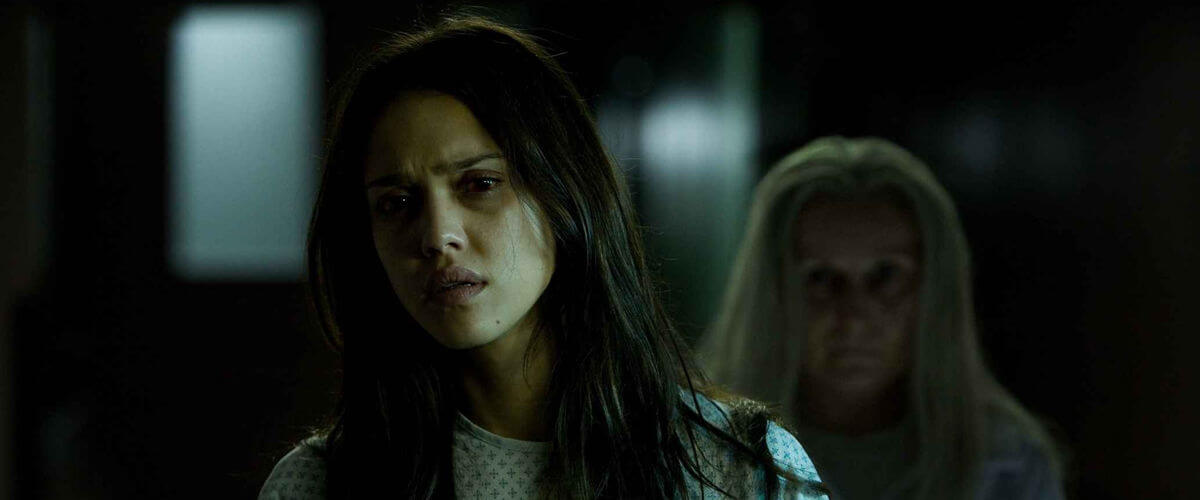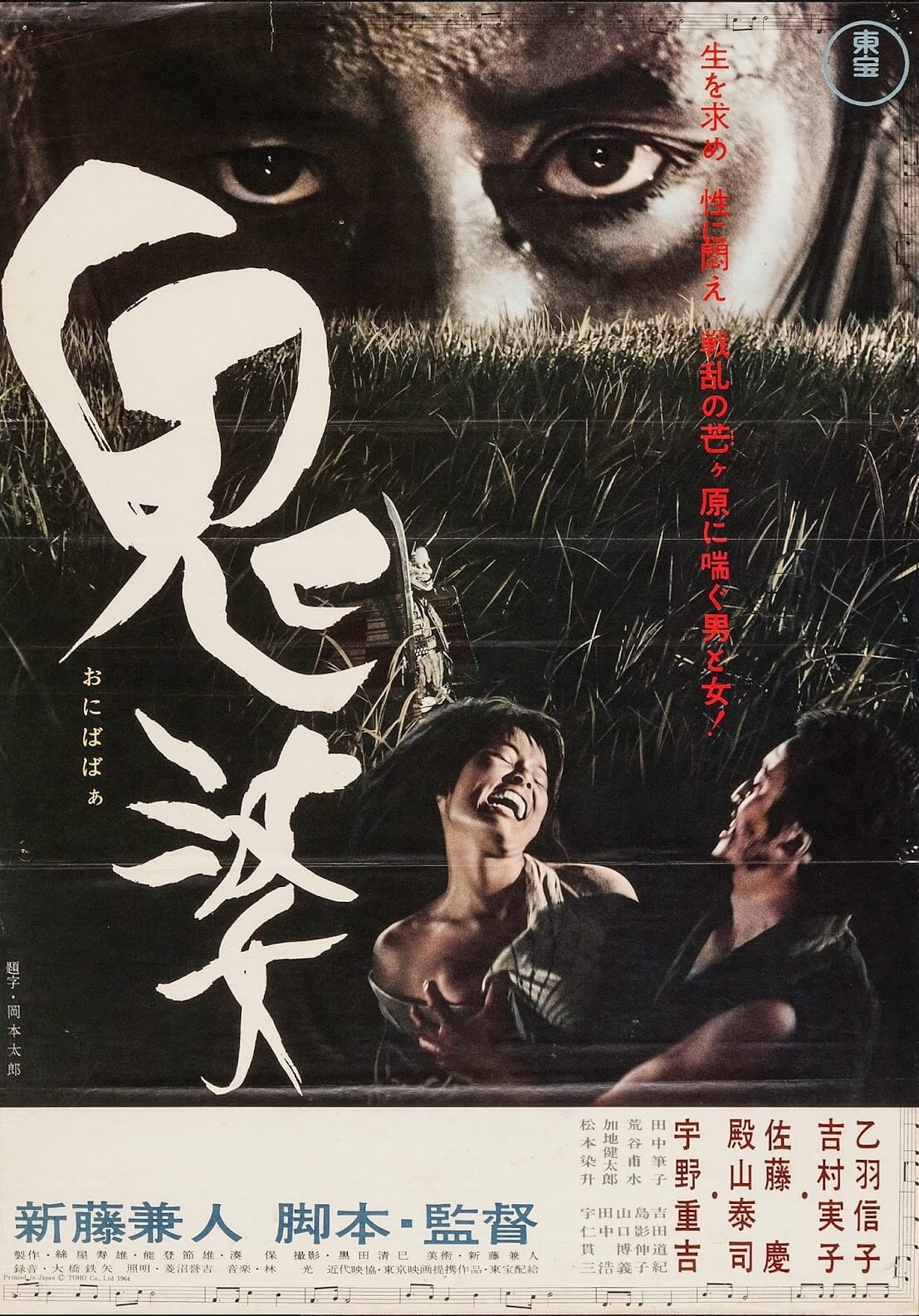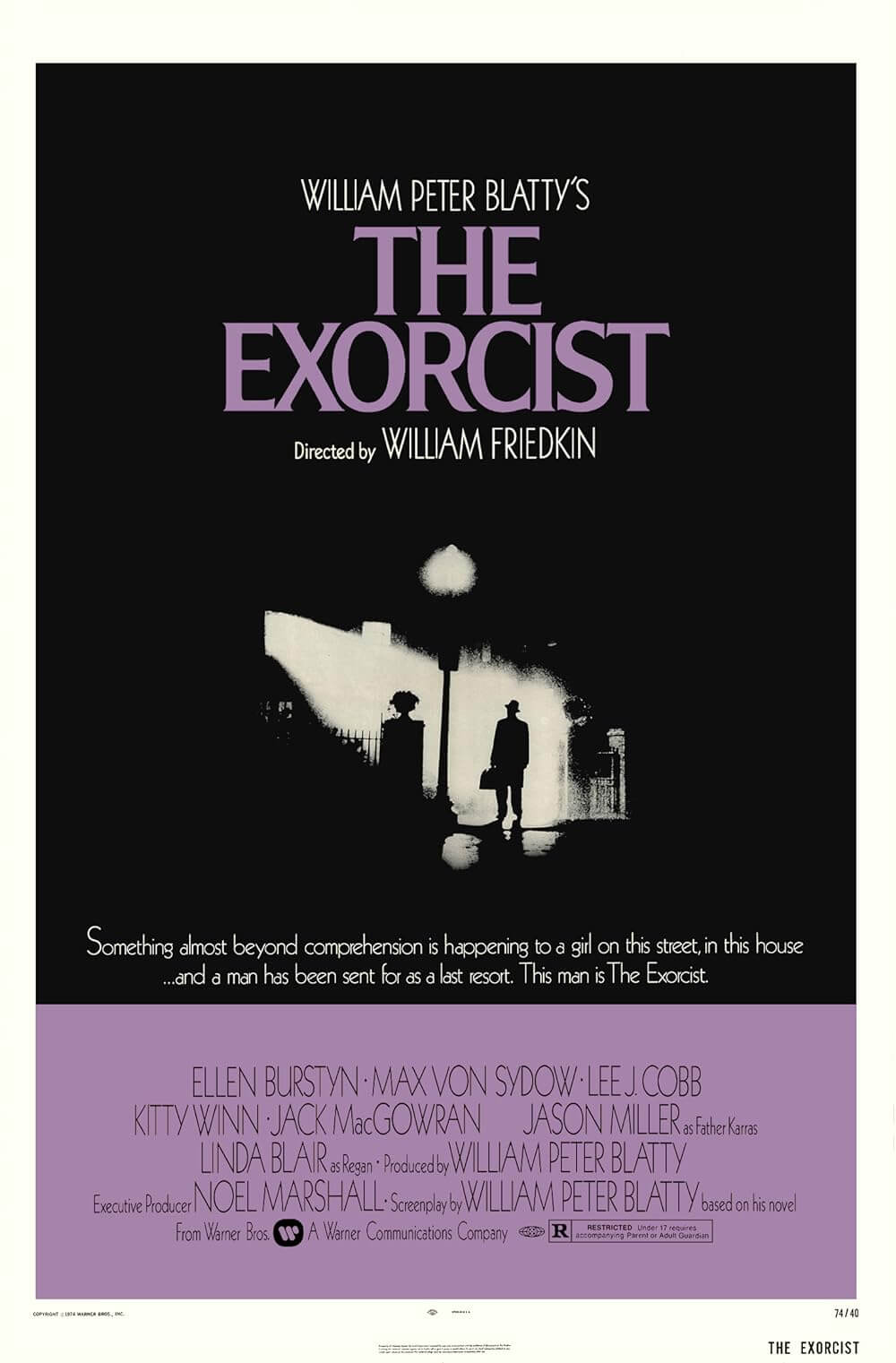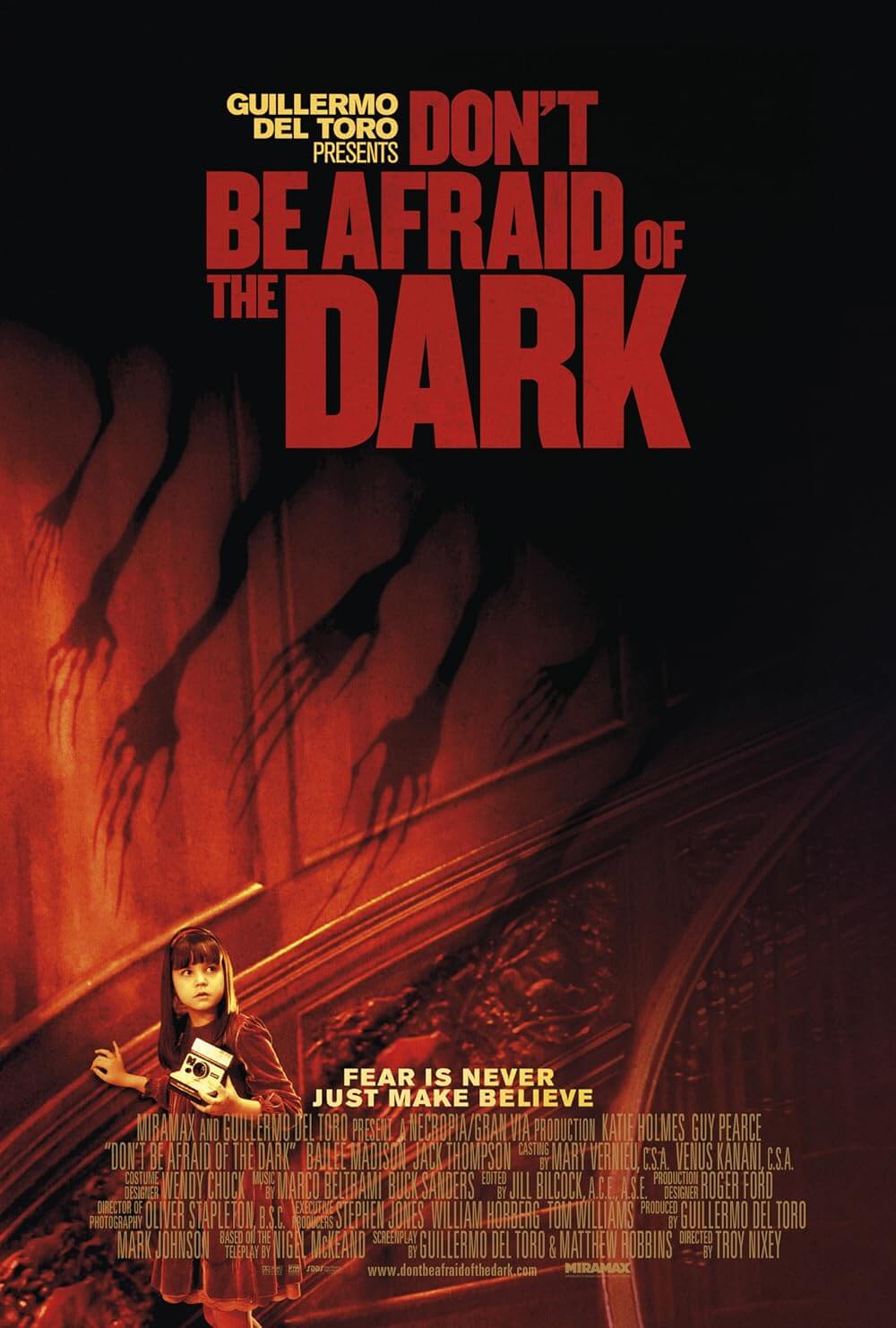
The Eye
By Brian Eggert |
Apparently, Americans, or at least American movie studios, are attracted by the prospect of Americanized East Asian horror movies. In the process of adaptation, specific cultural beliefs are lost in translation. Dime-a-dozen remakes reduce such ghost stories to schlocky teenager fare that delivers one high-buck weekend at the box office and then die out, forgotten as they should be. The Eye, originally a Hong Kong smash by The Pang Brothers, is no exception, but it proves less cohesive than your average Asian horror remake due to the troubled production and a star incapable of relating dramatic tension.
The story begins with Sydney Wells (Jessica Alba), a young, sightless violinist whose life changes when a corneal transplant offers her the chance to see again. Blind since she was five due to a firecracker accident caused by her sister Helen (Parker Posey), Sydney’s operation goes off without a hitch, leaving her blurry-eyed and adjusting to all five senses again. Dr. Paul (Alessandro Nivola) is assigned to help reincorporate sight into her sensory intake. The troubles begin almost immediately, as her fuzzy vision reports phantom images, no doubt ghostly in nature. As she lies recovering in her hospital bed, the patient with which she shares the room gets up one night and is escorted out by a dark figure. She can only see impressions at this point, so it is impossible to tell why or with whom her roommate is leaving. The following morning, she’s told the fellow patient is gone, having died the night before.
Even when her sight clears as her healing progresses, Sydney’s eyes play tricks on her. Random flashes of fire and people screaming appear, thanks to the movie’s quick editing. She’s hounded by what she believes to be the ghost of a young boy who lived in her apartment building. The recently dead are readily visible to her and are always led away by creepy Death-like figures. She insists there’s something wrong with her new eyes, but Dr. Paul is adamant that it’s all in her head. (Question: Since both eyes communicate these ghostly images, why is the title singular rather than pluralized?)
We never buy Sydney’s relationships in the movie, as supplementary characters seem to be there as filler only. Posey’s role as the sister is utterly pointless, offering nothing by way of growth to either the plot or Sydney (certainly a waste of Posey, otherwise a fine talent). And Sydney’s rapport with Dr. Paul remains forced; they’re virtually swooning in a romance that never blossoms, leaving us wondering why they were so touchy-feely throughout the entire picture. Alba is never convincing in the role. Her stale delivery is best illustrated in the end-capping narration, in which Alba prattles off the movie’s meaning without the slightest dramatic pause. Screenwriter Sebastian Gutierrez wrote this insultingly revealing voice-over because it seems he could not conceive how to show us such details. A good movie shows and does not tell, but this horror flick does exactly the opposite.
The movie unfolds at a slow pace, never sustaining any forward motion. Instead, it circles around Sydney’s struggle, showing us the same fuzzy ghost images over and over, building to nothing until its sudden conclusion. Only in the third act does Sydney realize she should’ve been asking where her eyes came from—a question we were asking five minutes after her surgery. Perhaps you remember the John Carpenter made-for-TV movie Body Bags, specifically the Tobe Hooper segment entitled “Eye” (the singular noun, accurate), wherein Mark Hamill’s character receives an ocular transplant? Hamill takes on the characteristics of his donor, a psychotic serial killer, and begins seeing dead bodies everywhere, later wanting to make a few dead bodies himself. Same idea here, called cellular memory, except Hooper knew to exploit the concept for everything it’s worth.
Helmed by not one but two directors, David Moreau and Xavier Palud, The Eye was subject to reshoots, rewrites, and so forth. In the resulting wreck, we see evidence of two potential movies, both better than the existing picture: The first is a drama about a woman haunted by the ability to see again, about her inability to adjust to a new sense, and about how she is no longer viewed as “special” because she lacks a disability. The second is a ghost story about using the gift-curse of her haunted eyes to save the soon-to-be dead. Neither plot coagulates, leaving us with a runny mess reminiscent of better (yet still dim) movies like The Grudge and The Ring.

Unlock More from Deep Focus Review
To keep Deep Focus Review independent, I rely on the generous support of readers like you. By joining our Patreon community or making a one-time donation, you’ll help cover site maintenance and research materials so I can focus on creating more movie reviews and critical analysis. Patrons receive early access to reviews and essays, plus a closer connection to a community of fellow film lovers. If you value my work, please consider supporting DFR on Patreon or show your support in other ways.
Thank you for your readership!
Brian Eggert | Critic, Founder
Deep Focus Review







